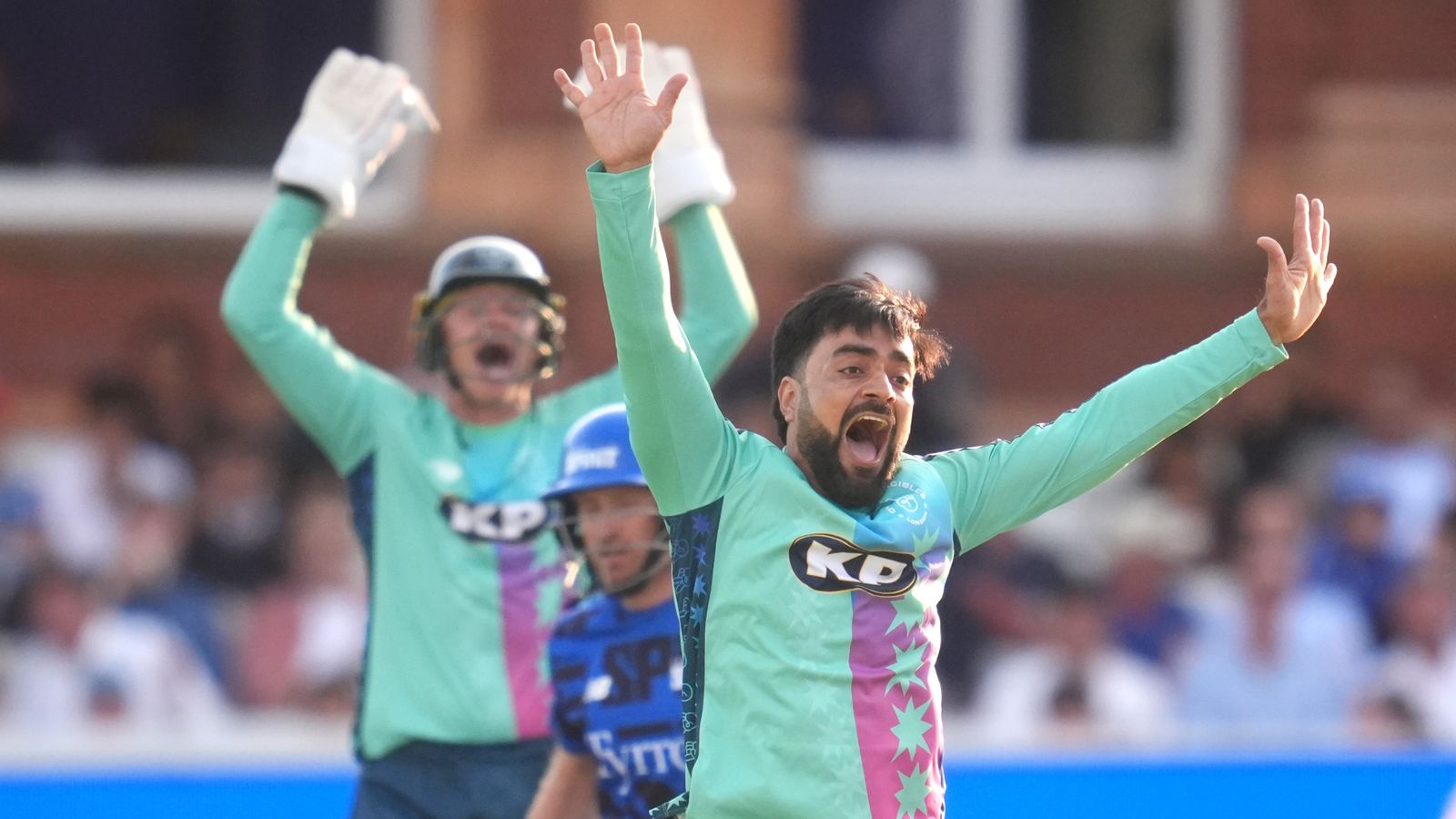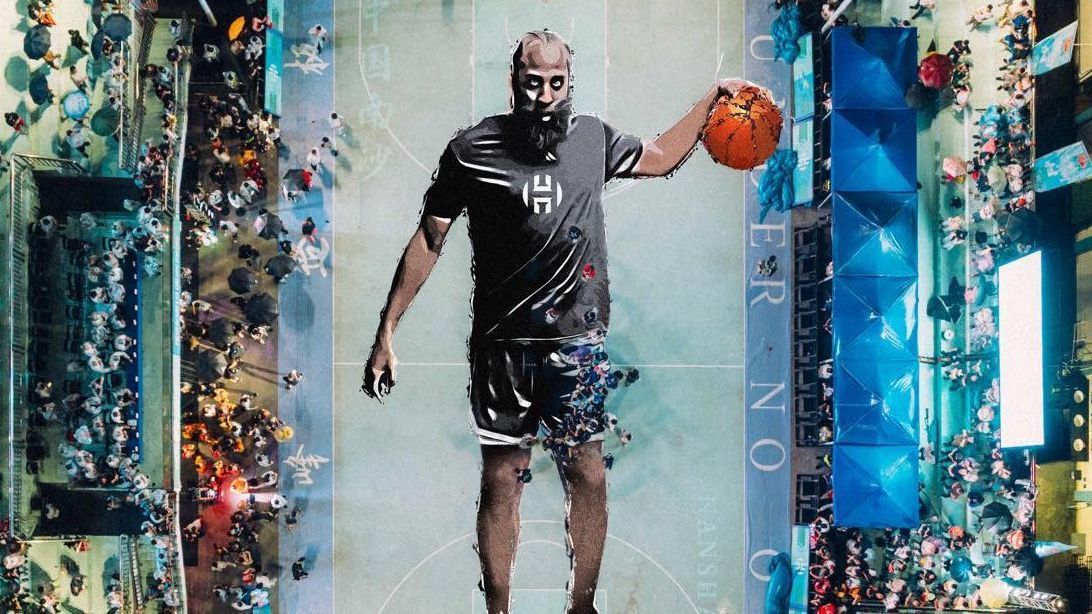
Welcome back to the Monday Tennis Briefing, where will explain the stories behind the stories from the past week on court.
This week, the Madrid Open’s beautiful weather created a classic tennis media problem, world No. 1 Aryna Sabalenka kept eking out wins and Casper Ruud showed that he contains multitudes.
The curious case of the disappearing tennis player?
After a Madrid Open at which the power went out and players raged about ball marks on the clay not aligning with electronic line calling (ELC), another issue occupied the minds of many fans who watched the tournament on television.
Advertisement
During several daytime matches at the Caja Mágica, sections of the broadcast feed — sometimes one quadrant of the court, sometimes half the picture — were flooded with dazzlingly bright light. So bright that the players and the ball would disappear whenever they entered it, making the sun seem like a portal to another dimension and making the match borderline unwatchable.
This is part of a wider problem in tennis, whereby the architecture of certain venues — especially ones that aren’t purpose-built for the sport — turns what should be a spectacle into an eyesore. The orientation of the court, the position of television cameras and retractable roofs can all become problematic, leaving watching fans baffled as to how the elite level of a sport can fail so basically. Perhaps even more baffling is the extent to which the very obvious problem of players disappearing from view goes unmentioned by commentators. Drawing attention to a negative experience is not desirable for broadcasters, but pretending it’s not happening is also doing a disservice to the people watching.
Away from Madrid, tournaments in Halle and Berlin, both in Germany, and the Italian Open, in Rome also suffer from the shadowy court patterns, some from stadia and some from overhanging flora but all of which draw ire from fans.
Short of redesigning courts, introducing awnings for broadcast or only playing tennis at venues used exclusively for the sport, not a lot can be done. But with tennis competing with so many other sports for eyeballs, these issues are really not welcome.
How sustainable is Sabalenka’s form?
The sign of a good player or team being that they win when playing badly is the haughtiest of sporting clichés; it also comes into conflict with the idea that results will catch up with mediocre performances.
Advertisement
How then to parse world No. 1 Aryna Sabalenka’s 2025?
Sabalenka has been comfortably the best player on the WTA results-wise, winning or reaching the final in six of her eight events, including taking the Madrid Open title against Coco Gauff. Her performances, though, have often been patchy. In the Spanish capital, she made hard work of winning the first set against qualifier Anna Blinkova, played poorly to drop the opener against Elise Mertens, was constantly in trouble on serve against Peyton Stearns and then dug out straight-sets wins in far from straightforward matches against Marta Kostyuk and then Elina Svitolina in the quarterfinals and semifinals. Still, she won the title.
It’s impossible to play at top form all the time and Sabalenka is winning titles without doing so, which suggests her rivals have plenty to fear if she starts to click into top gear. The WTA Tour also has such a depth of talent that even apparently routine matchups may not play out as expected. But Sabalenka’s numbers suggest she is defying the law of averages, especially when it comes to escaping adversity behind her serve.
Sabalenka is 10th in the WTA top 50 for 2025 when it comes to break points faced per match, according to data from Tennis Abstract, but third for service games lost per match. In 29 matches played, world No. 2 Iga Świątek has faced 145 break points; Sabalenka has faced 186 in 30 matches. But where Świątek has saved just over 55 percent of those 145, Sabalenka has saved over 63 percent of her 186. The average for the top 50 is 56.5 percent.
Advertisement
This is partly because Sabalenka has one of the best serves in the women’s game — but at the moment, it is saving her from adversity as much as it is preventing her from getting into it.
The two sides of Ruud (that aren’t so different)?
During Świątek’s one-sided defeat to Coco Gauff in Madrid, she shielded her face with a towel as she tried to cope with the emotion of the defeat — after which it was confirmed by Świątek’s team that her grandfather had passed away just prior to the event.
Waiting with some encouragement was Ruud, who went on to win the Madrid Open title by beating Jack Draper in three sets.
Later that week, Ruud found himself in a rather more tense situation. During his semifinal against Argentina’s Francisco Cerundolo, fans were repeatedly whistling between the Norwegian’s first and second serves. After ignoring a few, Ruud approached the chair umpire to ask where the line was for having his service motion interrupted:
Advertisement
“How many times can they scream before I can demand something? Why can’t you answer the question? You just say, ‘I’ll deal with it.’ But I’m asking a specific question,” Ruud said.
“How many seconds before I can demand let’s say another serve or a replay? If he does it again and again and again… nothing.”
There is no rule for such a scenario because neither player is doing anything wrong, but Ruud put forward the case that Cerundolo was benefiting from the interruption even if he was not seeking to gain any advantage himself. Ruud then asked at what point he might receive a first serve, in order to deter the whistling. The Norwegian was visibly infuriated, but in the calm, stoic kind of way that he brings to all of his tennis.
In the end, Ruud won the match and the event, letting out an unexpectedly loud extended grunt on a forehand winner that took him to championship point against Draper. Then, he lifted the trophy, as chill as ever.
How did Naomi Osaka follow a winning formula?
When Naomi Osaka won the Australian Open in 2021, the idea that she would have to wait more than four years before her next title would have been far beyond far-fetched. Osaka was the world’s dominant player at the time, especially on hard courts. It seemed like she was going to be winning a lot.
Advertisement
Saying that her next title would not just come more than four years later, but also at a WTA 125 event outside of the main tour would have seemed beyond the realms of possibility.
But there Osaka was May 4, holding the trophy for winning the Saint Malo Open 35 in France — a tournament one rung below the elite. This is what top players do when they can’t get enough rhythm and confidence to win enough matches to get that rhythm and confidence. Belinda Bencic played ITF events — a further rung down — to start her comeback from giving birth to her first child, and has since won a WTA 500 title and risen from No. 913 to No. 42 in the rankings.
Osaka has been up to some important business during her wait for another trophy. She twice took an extended break from tennis to work on her mental health; she gave birth to her first child, Shai, in 2023. She has also shown she is capable of elite tennis in fits and starts for the past four years, but for most of that time, she has not been able to sustain that level against the best players, either during matches or across tournaments. Could this win turn things around? That’s a little bit hard to predict, especially as clay has never been a comfortable surface for her despite this triumph.
Advertisement
The tour stays on clay for two more tournaments. Then it shifts to grass. Osaka is a work in progress on the organic surfaces. After this week, though, one thing is clear — she’s doing the work.
Shot of the week
The tennis shots, or the camera shot? Why not both!
Recommended reading:
Aryna Sabalenka beats Coco Gauff to regain Madrid Open title
Rising U.S. talent Tyra Grant will switch allegiance to Italy
Why tennis is asking its stars not to believe their eyes
Ten teens who are taking over the world (of sport)
🏆 The winners of the week
🎾 ATP:
🏆 Casper Ruud (14) def. Jack Draper (5) 7-5, 3-6, 6-4 to win the Madrid Open (1,000) in Madrid. It is the Norwegian’s first 1,000-level title.
🏆 Alex Michelsen (2) def. Andrea Pellegrino 6-4, 6-4 to win the Estoril Open (Challenger 175) in Estoril, Portugal. It is the American’s biggest career title.
Advertisement
🎾 WTA:
🏆 Aryna Sabalenka (1) def. Coco Gauff (4) 6-3, 7-6(3) to win the Madrid Open (1,000) in Madrid. It is the world No. 1’s third title of 2025.
🏆 Naomi Osaka (2) def. Kaja Juvan 6-1, 7-5 to win the Saint Malo Open 35 (WTA 125) in Saint Malo, France. It is Osaka’s first title since February 2021.
📈📉 On the rise / Down the line
📈 Coco Gauff moves up one place from No. 4 to No. 3, regaining third spot from compatriot Jessica Pegula.
📈 Casper Ruud ascends eight spots from No. 15 to No. 7 after his title in Madrid.
📈 Naomi Osaka reenters the top 50 after rising seven spots from No. 55 to No. 48.
Advertisement
📉 Andrey Rublev falls nine places from No. 8 to No. 17.
📉 Sara Sorribes Tormo leaves the top 100, dropping 23 places from No. 86 to No. 109.
📉 Felix Auger-Aliassime tumbles eight spots from No. 19 to No. 27.
📅 Coming up
🎾 ATP
📍Rome: Italian Open (1,000) featuring Jannik Sinner, Carlos Alcaraz, Alexander Zverev, Jack Draper.
📺 UK: Sky Sports; U.S.: Tennis Channel 💻 Tennis TV
🎾 WTA
📍Rome: Italian Open (1,000) featuring Aryna Sabalenka, Iga Świątek, Coco Gauff, Jasmine Paolini.
📺 UK: Sky Sports; U.S.: Tennis Channel
Tell us what you noticed this week in the comments below as the men’s and women’s tours continue.
Advertisement
This article originally appeared in The Athletic.
Tennis, Women’s Tennis
2025 The Athletic Media Company
#watch #tennis #television #ball #disappears #sunlit #portal #doom






